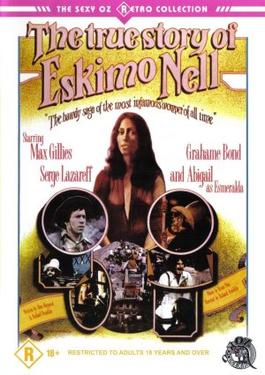Related Research Articles

Jane Wyman was an American actress. A star of both movies and television, she received an Academy Award for Best Actress, four Golden Globe Awards and nominations for two Primetime Emmy Awards. In 1960 she received stars on the Hollywood Walk of Fame for both motion pictures and television. She was the first wife of President Ronald Reagan.
Secret Valley is a children's television adventure series created by Terry Bourke and Roger Mirams. It was produced by the Grundy Organisation from Australia in association with Telecip from France and Televisión Española (TVE) from Spain. It was first aired in 1980 on the ABC in Australia, and in 1982 on TVE 2 in Spain. It spawned a spin-off series in 1986 titled Professor Poopsnagle's Steam Zeppelin.
Glenview High is an Australian television drama series produced by the Reg Grundy Organisation for the Seven Network between 1977 and 1978.
Sue Belinda Giblin professionally billed as Belinda Giblin, is an Australian actress. Prominent in theatre and television soap operas, and several feature films.

Stone is a 1974 Australian outlaw biker film written, directed and produced by Sandy Harbutt. It is a low budget film by company Hedon Productions.
Glen Street Theatre is a 400-seat proscenium arch auditorium located in the Forest Community Centre, at the corner of Glen Street and Blackbutts Road in Belrose in the northern suburbs of Sydney, New South Wales, Australia. It was opened as Stage 2 of the Forest Community Centre on 6 July 1985 by Warringah Shire President Darren Jones, and is owned by the Northern Beaches Council.

The True Story of Eskimo Nell is a 1975 Australian western comedy film produced, directed, and written by Richard Franklin, and starring Max Gillies as Deadeye Dick and Serge Lazareff as Mexico Pete. This was the first film produced by Richard Franklin.
Petersen is a 1974 Australian drama film directed by Tim Burstall.

Sidecar Racers is a 1975 Australian film about an Australian motorcycle rider who teams up with an American surfer to take part in a motorcycle racing tournament.

Because He's My Friend, also known as Love Under Pressure, is a 1978 Australian TV movie about a married couple and their mentally disabled son. It was one of six telemovies made in Australia as co-productions between ABC and Transatlantic Enterprises. It was the final film of veteran American director Ralph Nelson.
The Death Train is a 1978 Australian made-for-television horror thriller film directed by Igor Auzins, and starring Hugh Keays-Byrne and Max Meldrum.
Demolition is an Australian TV movie.
The Tichborne Affair is a 1977 Australian television film directed by Carl Schultz and starring Hugh Keays-Byrne, Neil Fitzpatrick, and Ken Goodlet. It is based on the Tichborne case.

Dynasty is an Australian TV series that aired from 7 October 1970 to 6 October 1971, based on the 1967 Tony Morphett novel of the same name which had been previously adapted as a television play.
"Johnny Belinda" was a 1959 Australian TV adaptation of the 1940 play by Elmer Harris which had been filmed in 1948. It was the first "live" one hour drama on commercial television in Australia.
Over There is an Australian television drama adventure series which first screened on the ABC in 1972 to 1973.
The Sammy Awards were Australian television and film awards held annually between 1976 and 1981, initially supported by the TV Times and the Seven Network.
Rusty Bugles is a 1981 Australian television film based on the stage play of the same name.
Breaking Through is a 1990 Australian docudrama TV film about Cathy Ann Matthews. It tells her story of how when in her 40s she started experiencing memories of being abused as a child. It is based on he book of the same name.
References
- 1 2 3 Groves, Don (3 June 1979). "Bring back the Oracle". Sun Herald. p. 63.
- ↑ Ed. Scott Murray, Australia on the Small Screen 1970-1995, Oxford Uni Press, 1996 p136
- ↑ Hogan, Christine (4 June 1979). "Let down by the script". The Sydney Morning Herald. p. 13.
- ↑ Hogan, Christine (18 October 1979). "Marcia Hines and Mike Walsh Win top TV awards". The Sydney Morning Herald. p. 12.